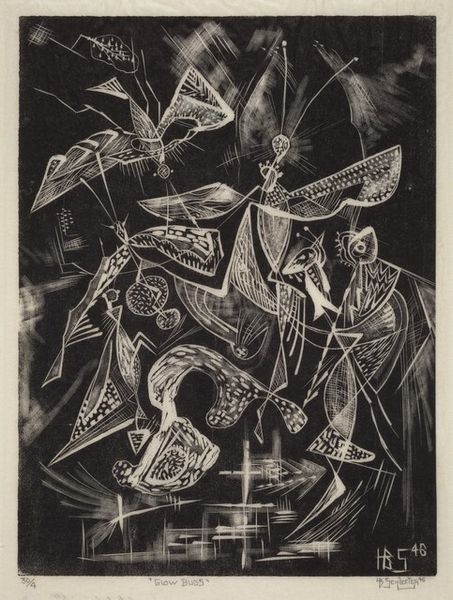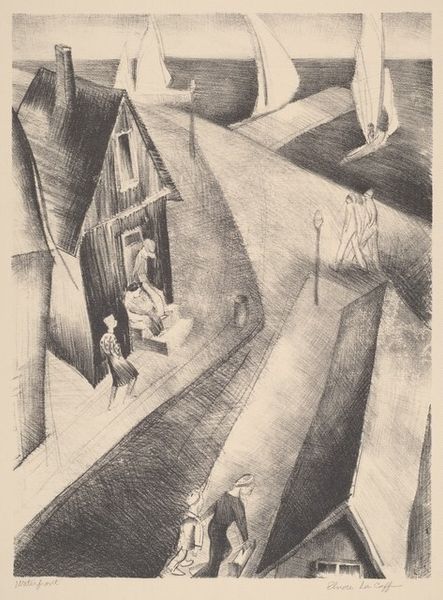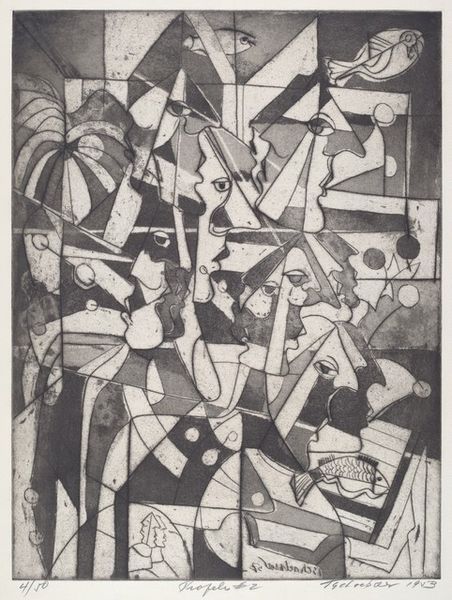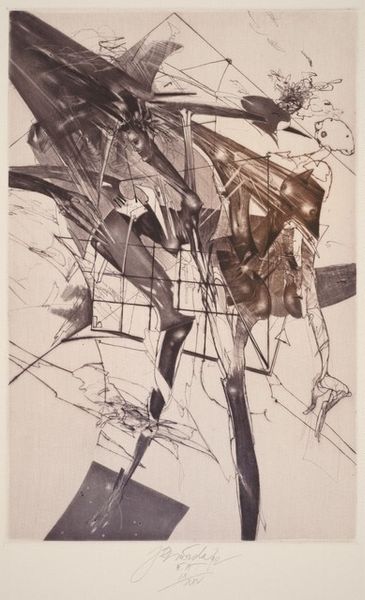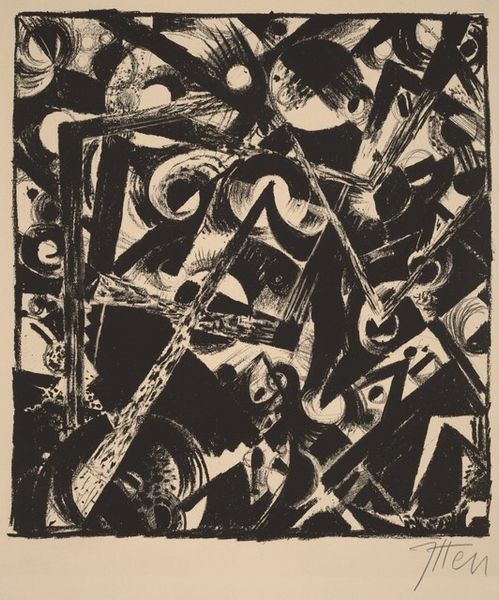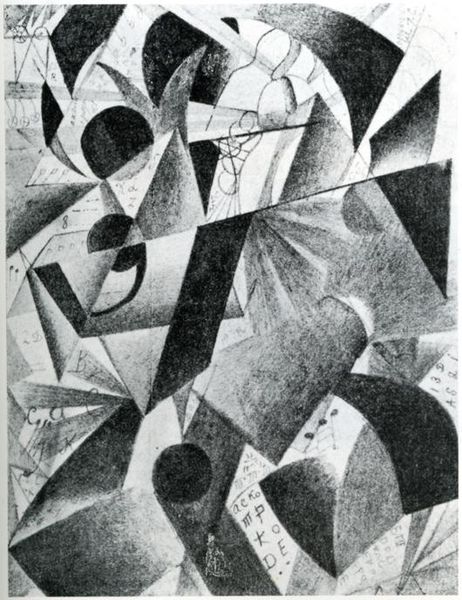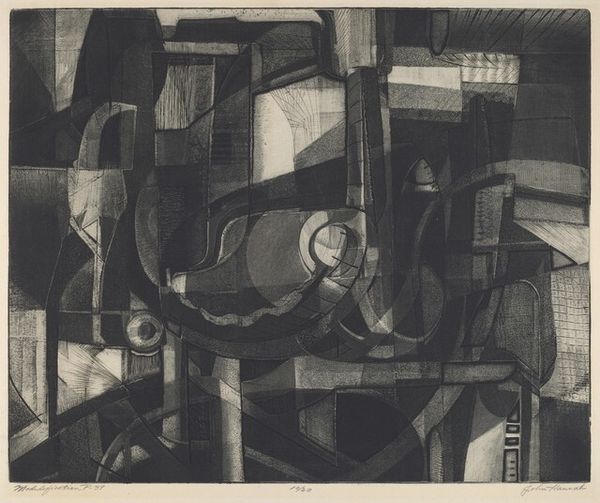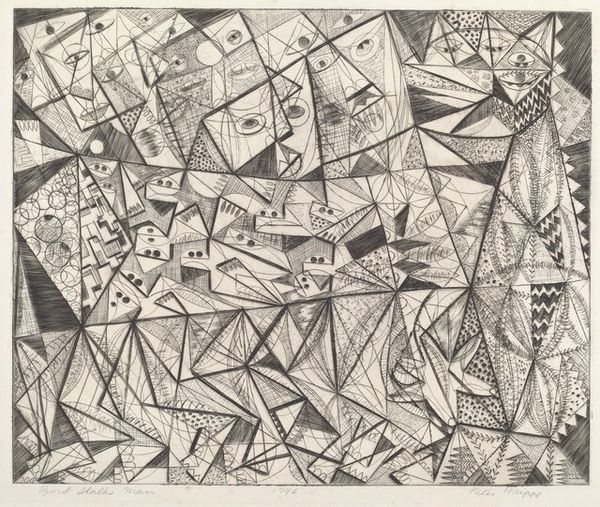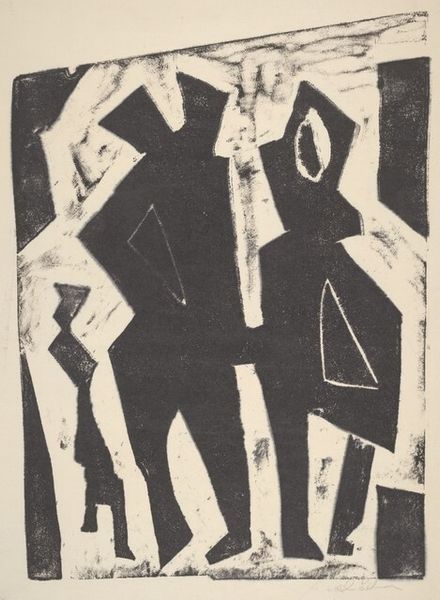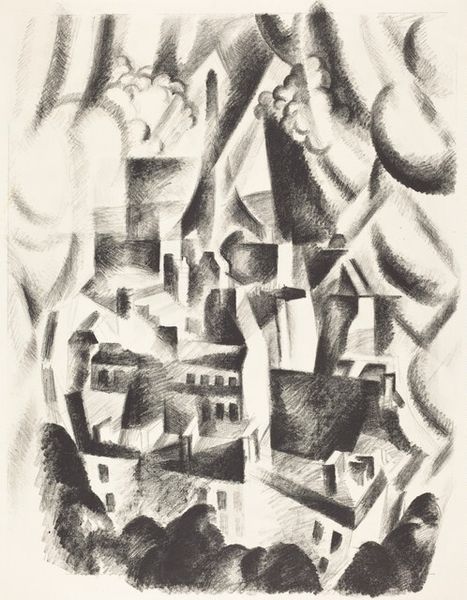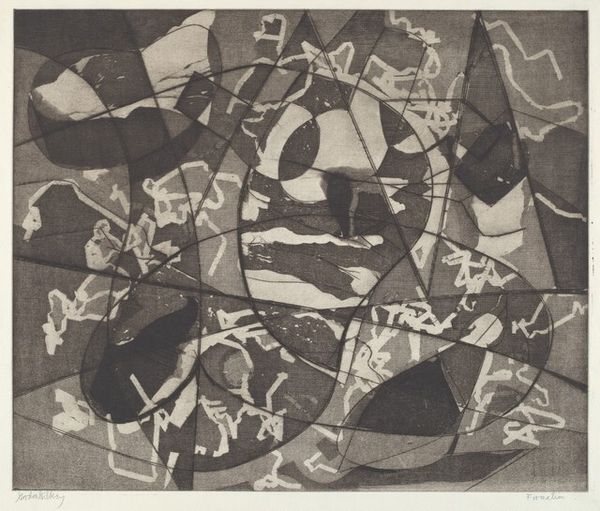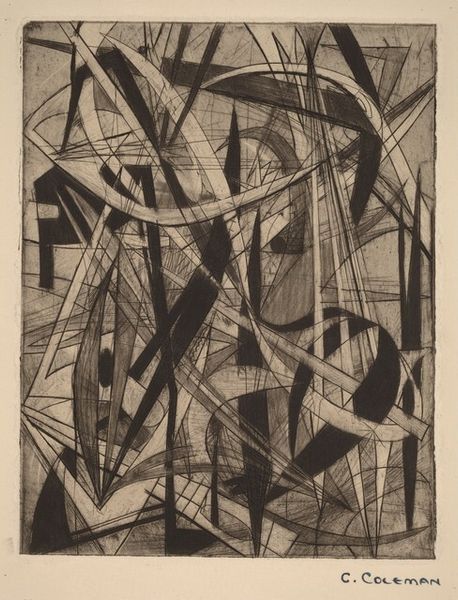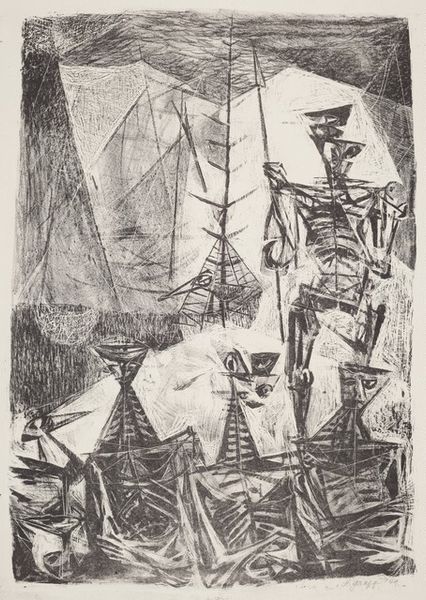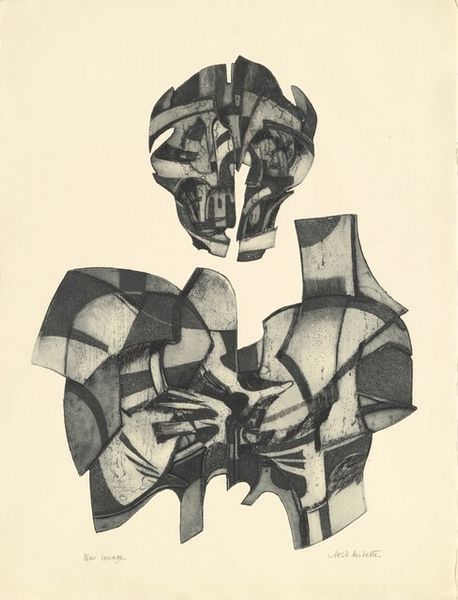
graphic-art, print
#
abstract-expressionism
#
graphic-art
#
amateur sketch
#
light pencil work
#
quirky sketch
# print
#
pencil sketch
#
incomplete sketchy
#
sketchwork
#
pen-ink sketch
#
geometric-abstraction
#
sketchbook drawing
#
cityscape
#
sketchbook art
#
initial sketch
Dimensions: image: 352 x 270 mm stone: 440 x 349 mm sheet: 515 x 398 mm
Copyright: National Gallery of Art: CC0 1.0
Curator: Looking at John von Wicht's "Orchestra" from 1950, a whirlwind of geometric abstraction captured in print… it feels like diving headfirst into a cacophony of city sounds, doesn’t it? What's your immediate take? Editor: Claustrophobia. The monochrome sketch presents the visual sensation of an urban soundscape—aggressive geometry as a stand-in for noise pollution. Given that the work was made in 1950, how can we contextualize the image within a larger conversation of noise pollution and mid-century urban growth? Curator: Well, I see it more as an echo of a bustling metropolis, you know? All those fractured lines, like shards of glass catching sunlight. The abstract expressionism… It's not just noise; it's the energy, the vibrant pulse of life in the urban sprawl. And look at how the artist plays with perspective – it is dynamic. Editor: Absolutely. Von Wicht evokes dynamism by embracing visual fragmentation, but there’s also a sense of social commentary implicit within abstract renderings of the city and modernity. Early modernist painters championed speed and industrialization, while this abstract approach may convey the sense of alienation felt in a post-industrial landscape. Curator: True. There's a definite ambivalence here, which is so interesting because the geometric shapes give me a sense of modern life—skyscrapers, construction... Then there are hints of musical notes, suggesting harmony within chaos. Does von Wicht succeed in that task? Editor: Interesting—harmony may be a reach! But, perhaps this abstraction reveals something critical about power. Mid-century city planning displaced marginalized communities, particularly communities of color. Looking closely, whose perspectives do you see represented and centered in the city space depicted here? Curator: Well, there are no people clearly rendered, but what remains is a stark portrait of progress divorced from the impact on human lives. That said, the initial impression I get from the light pencil work is a lighthearted sketch of optimism and abstraction… Editor: But whose optimism gets amplified and memorialized? Von Wicht compels us to engage with this fraught visual vocabulary. Thank you for speaking with me. Curator: Thanks. Food for thought about "Orchestra"–the way abstraction shapes our perspectives.
Comments
No comments
Be the first to comment and join the conversation on the ultimate creative platform.
